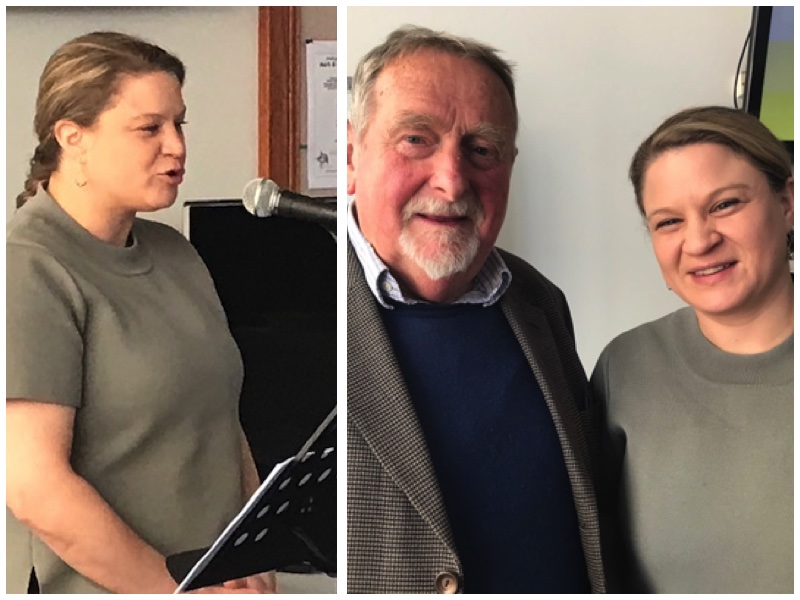Does That Sound Right?
by John Clarke
Using a foreign language can be difficult. Once, in describing a charity event,The Advertiser gave the article the headline Giftfest in the Barossa, not knowing that the German word Gift means poison.
At the last meeting of the German speaking group Kaffee und Kuchen the guest speaker was Dr Anna Nürnberger, Director of Research and Lecturer in Biblical Studies at the Australian Lutheran College. Dr Nürnberger was born in Nuremberg, Germany. She studied theology and English literature at the universities of Erlangen and Augsburg and worked as a Research Assistant and Lecturer at the University of Hamburg, before coming to Australia in 2016. She has taught at schools in both Australia and Germany.
As part of her talk comparing Australian and German educational systems she spoke about foreign language teaching. The attitude to foreign languages is very different. In Australia the general belief is that English is all that is needed. Consequently few children study a foreign language seriously. In Germany, which shares a border with Denmark, Poland, the Czech Republic, Switzerland, Austria, France, Belgium, Luxembourg and the Netherlands, of which few are German speaking, the necessity of speaking at least one foreign language is recognised by everyone. It is compulsory that all children learn a foreign language, the most popular choice being English.
And how is the language taught? Instruction begins very early, from the very first days of schooling, and again very early instruction is conducted in the foreign language. In Australia the practice, especially among younger students, has been to conduct classes in English, teaching children common foreign words and building a vocabulary. It is a practice which can be dreary, which is indicated by the small number of students who continue language study to Year 12 level. Teaching the language in context, as is done in Germany, retains interest and results in fluency and the ability to think more quickly in that language.
While the German system of education is clearly more successful in teaching a foreign language, the comparison of systems was not all to Australia’s disadvantage. Dr Nürnberger noted that frequent oral quizzes and unannounced tests, which are common in Germany, place pressure on students and cause anxiety. The focus of Australian schools is as much on building relationships and promoting learning through a relaxed environment as it is on imparting knowledge. How success is judged will vary from person to person and from country to country.
The next Kaffee und Kuchen meeting will be held at the Langmeil Centre, 7 Maria Street,
Tanunda on Monday, 27 October, starting at 1 pm.

